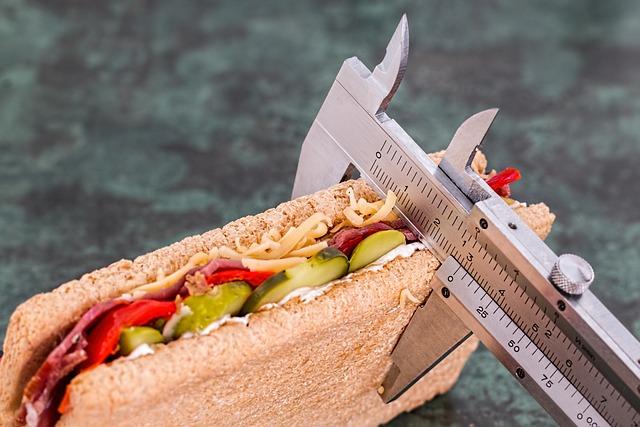In the ongoing quest for better health and fitness, the debate over the most effective approach to weight loss is as old as time itself. Is it more beneficial to shed pounds gradually, savoring each small victory, or to pursue rapid weight loss, reveling in the immediate transformation? This question is not just a matter of personal preference; it touches on the intricacies of human biology, psychology, and lifestyle. As the scales tip back and forth between these two methods, we embark on an exploration to uncover the truths and myths surrounding gradual versus quick weight loss. Join us as we delve into scientific studies, expert opinions, and real-life experiences to illuminate which path might lead to sustainable success in the journey towards a healthier you.
Understanding the Science Behind Weight Loss
When it comes to shedding pounds, the age-old debate revolves around whether it’s more beneficial to aim for a slow and steady approach or to dive headfirst into rapid weight loss. Understanding the physiological and psychological implications of each method is key to making an informed decision. Gradual weight loss, often advocated by health professionals, allows the body to adjust over time, reducing the risk of muscle loss and nutritional deficiencies. This approach emphasizes sustainable lifestyle changes, such as:
- Incorporating balanced meals into daily routines
- Maintaining consistent physical activity
- Fostering a positive relationship with food
On the other hand, rapid weight loss can be enticing due to its immediate results, often achieved through restrictive diets or intense exercise regimes. While it might provide a motivational boost, it’s crucial to recognize the potential pitfalls, such as metabolic slowdown or the dreaded weight rebound. Ultimately, the choice depends on individual goals, health status, and the ability to sustain the chosen method in the long run. Balancing the science with personal preference can lead to a more fulfilling and healthier weight loss journey.

The Psychological Impact of Rapid vs. Slow Weight Loss
When it comes to shedding pounds, the psychological effects can vary significantly depending on the pace of weight loss. Rapid weight loss often provides an immediate sense of accomplishment, a boost in motivation, and the excitement of quick results. However, it can also bring about stress due to strict dietary restrictions, the potential for muscle loss, and the fear of weight regain. On the other hand, slow and steady weight loss is generally associated with sustainable lifestyle changes, fostering a sense of long-term achievement and stability. This gradual approach allows for the development of healthier habits, reducing the likelihood of falling back into old patterns.
- Rapid weight loss: Quick results, increased motivation, potential stress and fear of regain.
- Slow weight loss: Sustainable changes, long-term success, development of healthy habits.
Ultimately, the psychological journey is deeply personal and can vary from one individual to another. It’s crucial to find a balance that aligns with one’s mental well-being, as the mindset plays a pivotal role in achieving and maintaining a healthy weight. Understanding personal triggers, setting realistic goals, and seeking support can make the journey more manageable and fulfilling.

Balancing Nutrition and Exercise for Optimal Results
- Understanding Your Body’s Needs: Every individual has unique nutritional requirements and exercise capabilities. It’s crucial to listen to your body and adjust your diet and workout routine accordingly. Striking a balance involves consuming the right mix of macronutrients—proteins, carbohydrates, and fats—while ensuring your exercise routine complements your dietary intake. This harmonious approach not only fuels your workouts but also aids in recovery and overall health.
- Setting Realistic Goals: Whether you aim to shed pounds quickly or over a longer period, the key is setting achievable goals that align with your lifestyle. Gradual weight loss is often associated with sustainable changes and healthier habits, whereas rapid weight loss might require more stringent measures that could be difficult to maintain. Consider incorporating a variety of exercises, such as cardio, strength training, and flexibility workouts, to keep your routine dynamic and effective.
Crafting a Personalized Weight Loss Strategy
When embarking on the journey of weight loss, it’s essential to tailor your approach to your unique needs and lifestyle. Creating a personalized strategy involves understanding your body’s signals, setting realistic goals, and choosing methods that align with your preferences and daily routine. Here are some key elements to consider when crafting your plan:
- Assess Your Lifestyle: Consider your current habits, such as eating patterns, physical activity levels, and sleep schedule. Understanding these factors can help you identify areas for improvement and set achievable targets.
- Set Realistic Goals: Aim for small, incremental changes rather than drastic shifts. This could mean incorporating an extra 10 minutes of walking into your day or swapping sugary snacks for healthier alternatives.
- Listen to Your Body: Pay attention to how different foods and activities make you feel. This awareness can guide your choices and help you develop a sustainable routine.
- Stay Flexible: Life is unpredictable, and your weight loss plan should accommodate this. Be prepared to adjust your strategy as needed, whether due to changes in your schedule, new health information, or simply a shift in your goals.
Ultimately, the best approach is one that respects your individuality and supports long-term wellness. By focusing on gradual, sustainable changes, you’re more likely to achieve and maintain your desired results.
